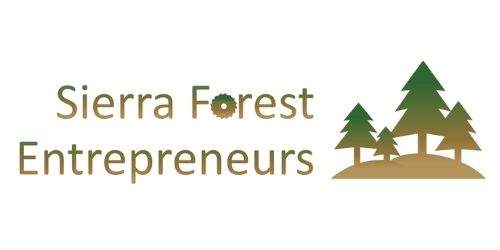By Lauren Redmore and Zoe Watson

The timber industry decline that led to mill closures in the 1990s left many rural forested communities in California without an economic base, driving out many families in search of economic opportunity. Those who stayed behind still lack family supporting employment opportunities.
As timber processing capability plummeted before stabilizing in recent years, the need to manage forest resources is more critical than ever due to the overstocking of trees and extreme drought that has culminated in this year’s Dixie fire.
Despite the state’s efforts to grow a working forest sector, the industry has yet to be retooled to more effectively integrate ecologic, social, and economic benefits.
Across the state, wood products campuses, like Sierra Institute’s very own Indian Valley Wood Products Campus in Crescent Mills, have been advanced as part of the solution. However, many campuses struggle to recruit wood product manufacturing businesses because there are few businesses left.
As a result, much of the biomass harvested from fuels reduction and forest restoration work is left in the forest or piled and burned. This represents a net loss of material that could contribute to the state’s wood products sector, bring economic benefit to struggling rural economies, and help with efforts in rebuilding communities that have been devastated by recent wildfires, including Greenville and Indian Falls.

Federal and state agencies, as well as other nonprofit organizations, have already launched programs, as well as formal and informal coordination groups, to address forest restoration challenges and needs across rural forested regions of California. The Sierra Institute has taken a leadership role amongst these groups to coordinate and accelerate efforts to build a forest restoration workforce and grow forest-sector businesses. These efforts have led to the submission of a million-dollar Rural Innovation, Stronger Economy (RISE) grant through the USDA as well as several additional large grant proposals currently in the works.

Through these grant proposals, the Sierra Institute will coordinate work across the sector, focusing on supporting community-scale businesses anchored in rural, forested and impoverished communities at risk to wildfire.
If successful, the project will strategically align resources from various government, for-profit, and nonprofit entities that are working to develop the forest industry and coordinate efforts to link and advance community-scale businesses, wood products campuses, and wood product markets. The project will build community-scale industry from the ground-up through a virtual incubator that will provide direct technical assistance to wood products campuses and their co-located businesses located in rural, struggling economies.
The Sierra Institute understands that rural economic development is crucial to ensure our forests are well-managed and communities are thriving. As our Indian Valley community and region begin the process of recovery from this tragic wildfire season, we recommit to continued efforts with key partners, forest businesses, and local communities to advance sustainable solutions to meet today’s challenges for tomorrow’s future.




